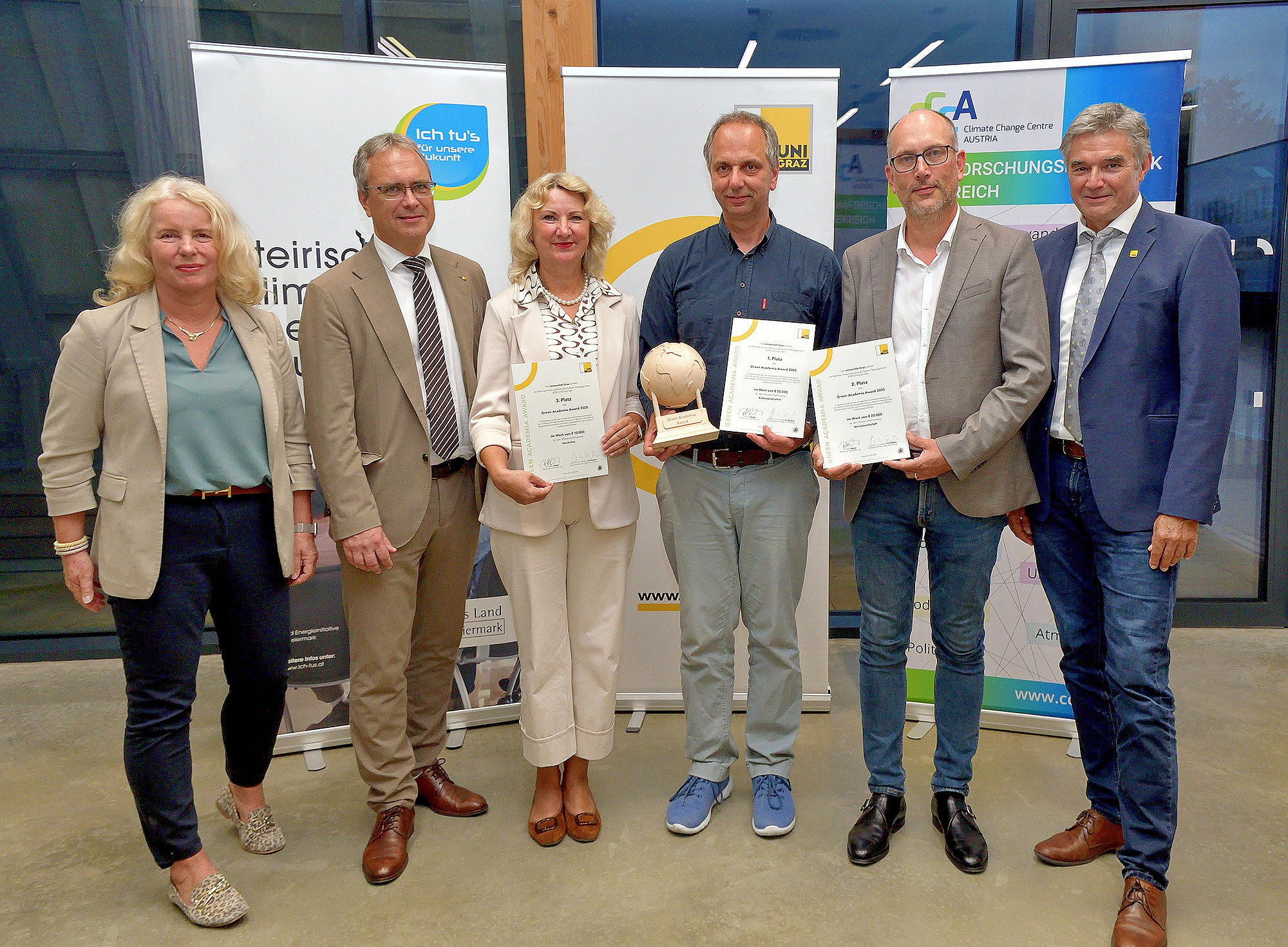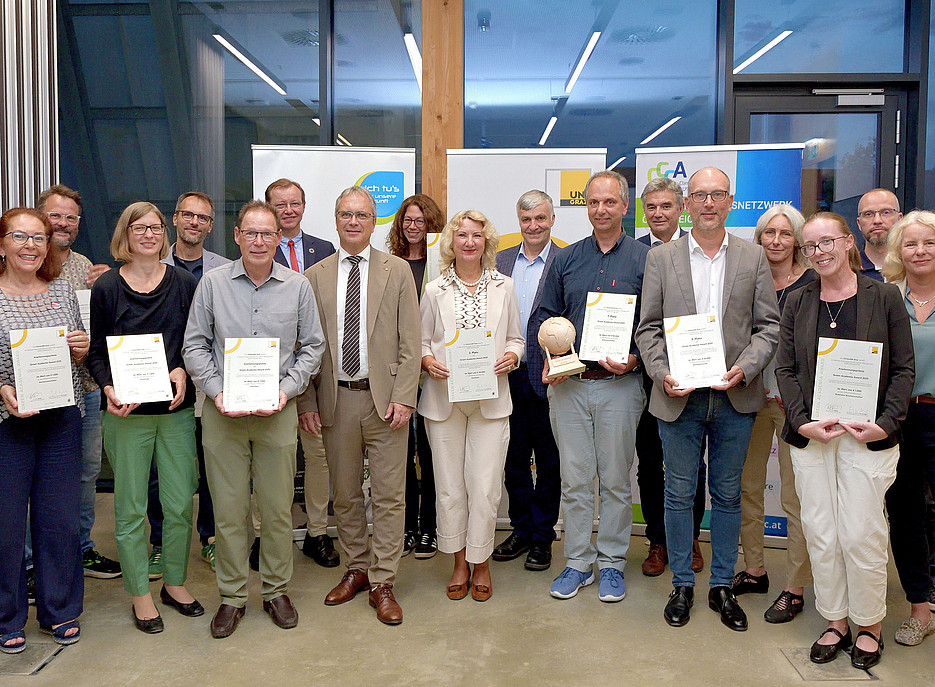Excellent research requires international networking and cooperation. In order to promote scientific achievements while reducing emissions from business travel, the University of Graz has launched the Green Academia Award. It aims to motivate researchers to make international exchanges more climate-friendly.
“The Green Academia Award, which has now been presented for the third time, is an important measure taken by the University of Graz on its path to climate neutrality by 2040. The award-winning scientific disciplines demonstrate how excellence and climate protection can be reconciled with international mobility, which accounts for a large proportion of the university's greenhouse gas emissions,” says Rector Peter Riedler, emphasising the importance of the initiative.
He presented the awards together with Joachim Reidl, Vice-Rector for Research, at the Styrian Climate and Energy Forum at Unicorn. “Science sets the course for the future and therefore bears a great responsibility. Climate protection plays a fundamental role in this. The Green Academia Award makes this commitment visible,” said Reidl, thanking the winners for their efforts.
To determine the winners of the Green Academia Award, a team of scientists led by Gottfried Kirchengast at the Wegener Centre of the University of Graz developed a special calculation method. The Office of Performance and Quality Management provided support in implementing this method. The calculation is based on a combination of the achievement of climate protection targets in the field of international business travel and research targets with regard to high-quality publications in the year prior to the award ceremony. Developments in each scientific discipline are considered separately in order to take into account the different conditions that apply in each branch.
Recognition award for ten other scientific disciplines
In addition to the three prizes of the Green Academia Award, recognition awards of 1,000 euros each were presented to ten other scientific disciplines. These were awarded to those who best fulfilled their climate protection goals in accordance with the Target and Performance Agreements of the University of Graz in the previous year: environmental systems sciences, molecular biosciences, psychology, pharmacy, economics, law, education sciences, geography, sociology and sports sciences.


